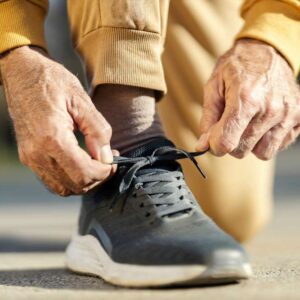Olympians Using the Wrong Supplements Could Result in Cancer
- Discover which supplements some Olympians are using to combat the dangers of Rio’s “latrine bay”
- Living Well health researcher uncovers unbelievable scandal about this Olympian-approved pill. Find out more…
- Plus, the only certification to look for when shopping for this powerful supplement.
Dear Reader,
Mattresses, cars, washing machines, trees, tables, dead horses, dogs, cats, couches, televisions, chairs and at least four human bodies.
This is a list of the alarming things sailors have seen while training in Rio’s Guanabara Bay.
Because of these contaminants, sailors competing in the 2016 Summer Olympic Games have been training to navigate a wide variety of unusual pollutants.

Just a glimpse of what sailors are up against in Guanabara Bay. Unfortunately, the gravest dangers aren’t visible to the naked eye. Source: sportsnet.ca
But back in March, members of the British Olympic Sailing Team adopted a different strategy to help protect themselves against the various health dangers of the Rio games.
And these precautions didn’t just include learning to dodge submerged furniture or how to alert Brazilian authorities to a washed-up body.
Instead, these sailors were preparing their bodies for the dangers lurking in the Brazilian waters that aren’t visible — the onslaught of bacteria and viruses they would face during their Olympic experience.
You see, in addition to the endless barrage of dangerous physical pollutants, Guanabara Bay is full of raw sewage. In fact, it’s so full of feces that Brazilian biologist Mario Moscatelli called it “a latrine.”
And he’s right — it’s teeming with human waste, dangerous bacteria and hazardous viruses that can all lead to serious illness.
So what do the Brits have up their sleeves to protect themselves as they sail through the sewage?
Supplements.
![]() Good for the Gut
Good for the Gut
According to the British Sailing Team manager, Stephen Park, “The sailors are on various supplements to mitigate against it, but we can’t do anything about the water.”
While brand, strain or dosage information wasn’t divulged, it was reported that some British sailors are taking a combination of probiotics and fish oil to “strengthen the gut.”
Probiotics are live bacteria that are beneficial for your digestive system and overall health. Probiotics are naturally found in your gut but can also be found in cultured foods and supplements. These little organisms are sometimes referred to as “good” bacteria. Researchers think that probiotics help balance the “good” and “bad” bacteria in the gut.
Supplementing with probiotics is a good choice for the sailors.
Research indicates that some probiotics are effective at combating infectious diarrhea and shortening the length and frequency if they do end up infected.
And since the Guanabara Bay is fraught with infectious diarrhea-causing bacteria and viruses and the sailors will undoubtedly come in contact with the “latrine” water during their events, this precaution may pay off for the Brits.
But the fish oil part is a bit confusing…
There’s no doubt fish oil has plenty of important health benefits like heart and brain support, but I’ve struggled to find research (in humans) indicating fish oil can “strengthen the gut” or, more specifically, strengthen the gut’s “good” bacteria.
Perhaps since fish oil is so rich in other health benefits, the addition of fish oil may enhance their overall well-being, not just their gut health.
The only problem is if they are taking a low-quality fish oil, they may have more to worry about than a case of infectious diarrhea.
![]() Diarrhea Over Cancer
Diarrhea Over Cancer
You see, recently, one of the health researchers here at Living Well discovered a set of little-known court documents revealing that some of the top fish oil products sold in grocery stores and health food stores tested positive for toxic chemicals called PCBs.
PCBs are suspected carcinogens.
The U.S. banned these nasty chemicals over 30 years ago. But before the ban, 1.5 billion pounds were manufactured, and incredible amounts have made their way into the world’s oceans and into the organisms living there.
This includes the fish used to make fish oil supplements.
I don’t know about you, but I would rather deal with diarrhea than cancer.
To avoid fish oil that’s not contaminated with PCBs, select a supplement that has been through a unique form of purification called molecular distillation. This process removes PCBs and other contaminants to below detectable levels.
The best way to do this is to select a fish oil supplement that comes from a member of the Global Organization for EPA and DHA Omega-3, or GOED.
GOED sets strict standards for concentration, freshness and limits for any toxic heavy metals or PCBs.
You can look for an oil that has been awarded the rare 5 Star Certification from the International Fish Oil Standards program. This program is the leading third-party testing and certification program for fish oil supplements and has the world’s highest standards for purity, potency and freshness.
Knowing the incredible health benefits from clean, certified fish oil, the Living Well research and development team spent months searching for the best oil. And we’re proud to say we’ve finally found it. It’s called UltraOmega and it’s now available to you.
The concentrated source of omega-3s in UltraOmega comes from wild-caught Alaskan Pollock. The oil is molecularly distilled and purified in Ohio — making it 100% American-made. Not to mention, the company who purifies our oil is a member of GOED, and they actually have stricter standards for contaminants than GOED. It’s also be awarded the five star certification from the International Fish Oil Standards program.
Plus, it comes in small, easy to swallow softgels and you won’t get any fish burps.
To discover more about this pure, potent and fresh fish oil supplement, click here.
Hopefully, the Brits chose a high-quality fish oil supplement. If not, they may be swallowing more than dirty bay water this summer.
Live well,

Natalie Moore
Managing editor, Living Well Daily
Sources
[1] SAILING THROUGH THE TRASH AND SEWAGE OF GUANABARA BAY
[2] Sailors’ nightmare in Rio Games: Plastic bags, trash in water
[4] Probiotics for treating acute infectious diarrhoea.
Written By Natalie Moore
Natalie Moore is a dedicated health researcher with a passion for finding healthy, natural, and science-based solutions. After a decade of direct healthcare experience in western and natural medicine, she was involved in public health research before joining Living Well Daily.
View More Free Articles
Exercise Activates This Hidden Cancer Defense System
I’ve heard my fair share of groaning from patients when I bring up exercise. I know I’m in danger of losing my “Favorite Doctor” badge every time I suggest putting on those workout shoes and heading out the door. But you might want to retire those groans after you read this—or at least put them...
This Sleep Mistake Is Doubling Your Disease Risk
Think your inconsistent bedtime is just a harmless habit? Think again. New research reveals that going to bed at different times each night isn’t just making you tired—it could be dramatically increasing your risk of serious diseases. But the key to making sure poor sleep doesn’t derail your health goals likely isn’t what you think…....
Stop Obsessing Over Diet Trends
Can we stop with the endless diet debates already? Every other week there’s a new headline shouting about which diet is best for weight loss, heart health, or diabetes. Paleo, keto, low-carb, high-protein… it’s exhausting. And now, a new meta-analysis is out comparing the Mediterranean diet, the DASH diet, and something called AHEI (that’s “Alternative...
A New Reason to Ditch Processed Junk
If you’ve ever walked the inside aisles of your local grocery store and thought, “This is all just junk,” your instincts were spot on. A new study published in the journal Thorax just added another red flag to the list of dangers linked to ultra-processed food—a 41 percent higher risk of lung cancer. That’s right....
When Being Winded on Stairs Is Serious (And When It Isn’t)
I had an athlete visit me recently because he experienced shortness of breath while climbing stairs. He is in great shape, so he was worried about what it might mean. “Doc,” he said, “I run five miles three times a week. Why am I huffing and puffing after two flights of stairs?” His concern is...
Study EXPOSES Hidden Danger Lurking in Your Car
We think of our homes and cars as safe havens. But according to a startling new study, they may be flooding your lungs with microscopic plastic particles—every single day. Researchers in France recently found that adults inhale an average of 68,000 microplastic particles daily from indoor air alone. To put that in perspective, that’s about...
Mailbag: Is Modern Food Making You Snore?
“What can cause snoring, and is there a way to correct this issue?” —Seeking Silence Hi Seeking, Snoring happens when the soft tissues in your throat relax and vibrate as air passes through during sleep. While several factors can cause snoring—from sleep position to nasal congestion—I want to share one trigger that might surprise you....
Simple Food Swap SLASHES Dementia Risk 28%
Let’s be honest… who would jump at the chance to cut their dementia risk by 28 percent. And no, you don’t need to run marathons, survive on broccoli, or learn to play the zither (whatever that is) to make it happen. All it takes is one easy swap—something that’s probably already in your refrigerator. Researchers...
This SMART Floss Exposes Hidden Health Danger
Scientists have created dental floss that doesn’t just clean between your teeth—it also tracks your stress while you’re flossing. Now, I know what you’re thinking… “Great—now even flossing is going to stress me out by telling me how stressed I am.” But this fascinating new tool from Tufts University could be a game-changer for understanding...
Is This "Safe" Sweetener Damaging Your Brain?
The headlines are alarming… “Popular Sugar Substitute Linked to Brain Cell Damage” and “Erythritol Could Damage Critical Brain Barrier” are just two of the dozens I’ve spotted recently. But before you toss every sugar-free product in your pantry, let’s take a closer look at what this study actually shows—and what it doesn’t. The latest research...









